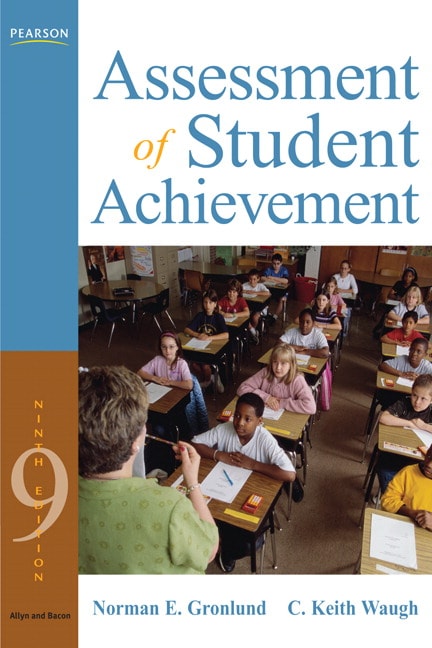
30.00$ - Purchase this E-book
Category : Higher Education
Preface CHAPTER 1: Achievement Assessment and Instruction Relation between Instruction and Assessment Assessment in the Instructional Process Other Ways Assessments Can Aid Learning Teachers’ Standards for Student Assessment Summary of Points References and Additional Reading CHAPTER 2: Nature of Student Assessment Major Types of Assessment Methods Guidelines for Effective Student Assessment Validity and Reliability in Assessment Planning Norm-Referenced and Criterion-Referenced Assessment Summary of Points References and Additional Reading CHAPTER 3: Planning for Assessment Using the Revised Taxonomy of Educational Objectives as a Guide Role of Instructional Objectives Preparing for Assessment Types of Assessment Procedures Summary of Points References and Additional Reading CHAPTER 4: Validity and Reliability Validity Reliability Summary of Points References and Additional Reading CHAPTER 5: Preparing and Using Achievement Tests Specifying the Instructional Objectives Preparing the Test Specifications Considerations in Constructing Relevant Test Items General Guidelines for Item Writing Arranging the Items in the Test Preparing Directions Administering and Scoring the Test Analyzing the Effectiveness of Test Items Summary of Points References and Additional Reading CHAPTER 6: Writing Selection Items: Multiple Choice Nature of Multiple-Choice Items Rules for Writing Multiple-Choice Items Summary of Points References and Additional Reading CHAPTER 7: Writing Selection Items: True-False, Matching, and Interpretive Exercise True-False Items Matching Items The Interpretive Exercise Summary of Points References and Additional Reading CHAPTER 8: Writing Supply Items: Short Answer and Essay Short-Answer Items Essay Questions Summary of Points References and Additional Reading CHAPTER 9: Performance Assessments Components of Performance Skills Stating Objectives for Performance Assessment Restricted and Extended Performance Tasks Steps in Preparing Performance Assessments Specifying the Performance Outcomes Selecting the Focus of the Assessment Selecting an Appropriate Degree of Realism Selecting the Performance Situation Making Performance Assessment More Authentic Selecting the Method of Observing, Recording, and Scoring Improving Performance Assessments Summary of Points References and Additional Reading CHAPTER 10: Portfolio Assessment Advantages of Using Classroom Portfolios Planning for the Use of Portfolios Evaluating the Portfolio Summary of Points References and Additional Reading CHAPTER 11: Grading and Reporting Selecting the Basis for Grading Combining Data for Grading Electronic Grading Guidelines for Effective and Fair Grading Reporting to Students and Parents Summary of Points References and Additional Reading CHAPTER 12: Interpreting Standardized Achievement Test Scores Features of Standardized Achievement Tests Interpreting Norm-Referenced Scores Percentile Ranks Grade Equivalent Scores Standard Scores Criterion-Referenced Interpretation Summary of Points References and Additional Reading Glossary Appendix: Revised Edition of Bloom’s Taxonomy of Educational Objectives Index Table of Contents
Get Assessment of Student Achievement, 9th Edition by Norman E. Gronlund, Late of University of Illinois at Urbana-Champaign C. Keith Waugh, Southern Illinois University of Carbondale


0 commentaires:
Enregistrer un commentaire